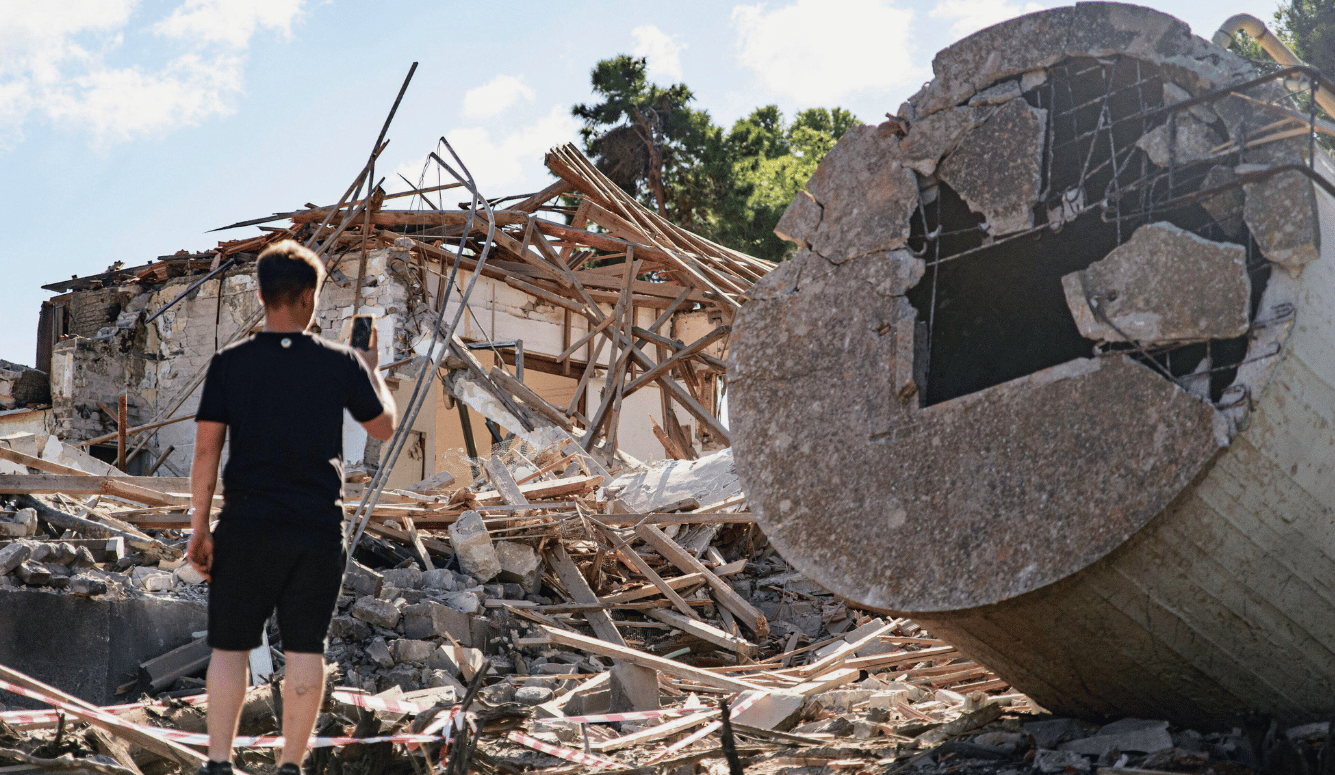Israel
The Sword of Damocles over Iran
The destruction of Iran’s nuclear facilities may be imminent—here’s why.

On the evening of 1 October, I was sitting in my living room watching television—instead of cowering in my home’s reinforced concrete “safe” room, as per government instructions—when I saw two streams of blazing projectiles pass by my window. They were five minutes apart, more or less horizontal, and moving southward slowly and in an orderly fashion. It later transpired that the projectiles—Iranian Fattah 1 and Kheibar Shekan ballistic missiles—were heading towards the southern Israel Air Force (IAF) base at Nevatim, and possibly also towards the nuclear plant at Dimona. They had not been intercepted—either because IDF radar operators projected that they would land harmlessly in empty fields or because Israel’s Arrow (Hetz) long-range anti-missile missiles had failed to hit them.
It later emerged that there had been failures in the interception system, and that Iranian missiles had landed in Nevatim and on another IAF base, at Tel Nof, in the centre of the country. Indeed, an Iranian missile apparently also landed near Gelilot, just north of Tel Aviv, close to the HQs of Mossad and of the IDF Intelligence Division’s 8200 electronic intelligence unit, which Tehran later claimed had been its target. All told, the missiles appear to have caused no serious damage and no Israelis were killed.
But it was a close call—which explains why the US is dispatching, and Israel is happy to receive, batteries of American THAAD (Terminal High Altitude Area Defence) interceptors, similar to the Israeli Arrows but perhaps superior in some ways. It is militarily and politically significant that Washington is sending these batteries with their original US Army crews. The THAADs are designed to help Israel neutralise future Iranian ballistic missile attacks.
The expected arrival of the THAADs and their integration into the Israeli interceptor systems appears to partly account for Israel’s continuing delay in responding to the Iranian assault of 1 October—a response that Israel’s Defence Minister, Yoav Gallant, has publicly predicted will be “lethal, precise, and surprising.” Another reason for the delay may be the ongoing Israeli–American talks, and disagreements, about the nature of the Israeli response. Washington has more or less publicly “advised”—i.e. warned—Israel not to target Iran’s nuclear installations or oil production facilities. Attacking the former, the argument goes, would drive Iran into an open-ended, all-out war against Israel and perhaps endanger American interests in the Middle East, while attacking the latter might trigger an Iranian counter-strike, as Tehran has warned, against oil facilities in Saudi Arabia, Bahrain, and the United Arab Emirates, thus ravaging global oil markets and causing a sharp increase in fuel prices that could negatively affect the Democrats’ chances in the forthcoming US elections.





